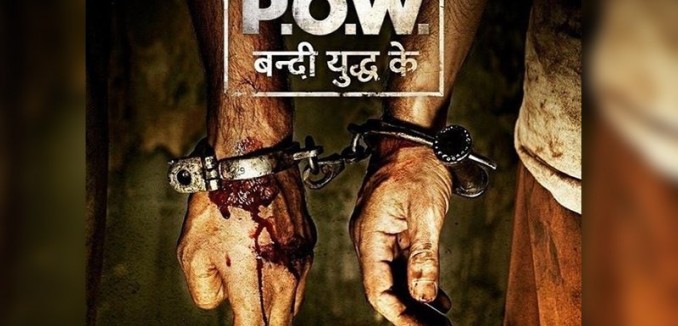The internationally acclaimed Israeli thriller Hatufim has been adapted for Indian television as a limited run series called POW – Bandi Yuddh Ke (Prisoners of War), Reuters reported Thursday.
As with the Israeli original, which was also the basis for the hit American show Homeland, the drama will focus on two soldiers who return home after spending 17 years in captivity.
The 126-episode Bandi Yuddh Ke will be a particular rarity for Indian television, which is dominated by family melodramas that run for years.
Gideon Raff, the creator of Hatufim, spoke of his inspiration for the series from the set of its Indian adaptation, where he was invited to oversee production by director Nikkhil Advani.
“In Israel we are obsessed with prisoners of war, with captivity. When one of our soldiers is captured by a terrorist organisation or country, we go out to the streets. The people strongly demand that the government pay a high price to bring them back,” Raff told India’s Firstpost last week.
“Israel is a very small country and a very small community, the army is mandatory. When something happens to a soldier, we feel something happens to us. We don’t even treat them as soldiers, we treat them as our kids. That is why the topic of prisoners of war is so personal; it’s not about a country being nationalist or anything, it’s just about how tiny the community is now. But once these missing in action (MIA) soldiers are brought back, no one wants to hear about them anymore,” he explained.
This spiked the interest of the Israeli director, who spent three years in the Israel Defense Forces before studying filmmaking in the United States.
“I tried to begin to research on what happened to some of these prisoners who were released from captivity. People who disappeared and came back. So when I started talking to prisoners of war, people who had been in captivity and came back, I realised this: coming back is the beginning of a very hard, hard, journey for most of them, if not all of them. It is a taboo. Nobody talked about it,” Raff observed.
“Two of the people I met, who affected me very much, were Ehud Goldwasser and Hezi Shai. Hezi Shai was captured by the Abu Jibril terrorist organisation for five years. He was tied to a radiator in a bathroom and was kept in a very, very small room. He was sold from one organisation to another for interrogation, and for the first three years of his captivity they didn’t admit that they had him, so Israel told his wife that he is dead,” he added. “But Hezi Shai’s wife didn’t believe he was dead. She always had this hope. The journey that he went through very much affected the story writing for Hatufim.”
Star India executives pegged Advani to adapt the thriller for an Indian audience after seeing his 2013 film D-Day. “Gideon Raff was concerned that our story wasn’t kicking in as soon as the original did, but we had to convince him that we have to spend the first six or seven episodes building up characters,” Advani told Reuters. “This is India. People like to be spoon-fed. In the West, if a character stands in front of Lehman Brothers and wearing a suit, he is a banker. But here, we have to say what he is.”
Despite dealing with a more serious theme than typical Indian dramas, Bandi Yuddh Ke is expected to resonate with audiences due to heightened tensions with Pakistan. It is also “an attempt to break out of the clutter and attract a younger audience increasingly lured by digital players like Netflix and Amazon,” Reuters noted.
The show will be broadcast six days a week beginning November 7 on Star Pulse, the flagship channel of Star India, which is owned by Rupert Murdoch.
In 2013, Variety proclaimed that Israel was “at the forefront of countries exporting TV program content to the United States,” pointing to Hatufim and other fare produced by Israel’s Keshet Media Group.
A year later, a number of Israeli television programs were scooped up by broadcasters from Turkey, Italy, Germany, France, Sweden, and Spain at MIPCOM, an annual international entertainment and TV market held in Cannes.
[Photo: Handout picture from ‘POW – Bandhi Yuddh Ke’ ]




